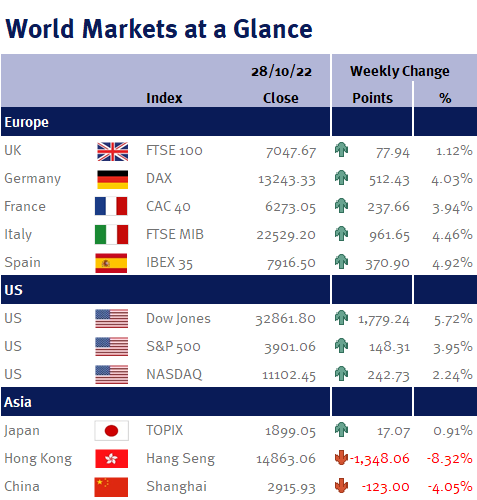Hopes that central banks may be about to pivot away from their aggressive monetary tightening sent global equity markets higher this week, despite some big share price falls in the heavily-weighted technology sector after Amazon, Alphabet (the owner of Google), Meta (the owner of Facebook) and Microsoft all reported profits that disappointed the market.
In fact, the falls in these four tech companies wiped a total of $350bn from their combined market capitalisations. To put this into perspective, this is roughly equivalent to the market capitalisation of Shell (£170bn) PLUS AstraZeneca (£156bn) – the two largest companies in the UK.
However, equity market sentiment was firstly helped by the Bank of Canada (BoC) which delivered a smaller-than-expected interest rate increase (0.5% versus 0.75%); then yesterday (Thursday 27 October 2022) the ECB, while doubling Eurozone interest rates to 1.5%, accompanied the increase with a statement implying that any additional increases in interest rates would be much smaller as the central bank was near the end of this tightening cycle.
Additionally, the central banks of Japan and Brazil both left their interest rates unchanged.


